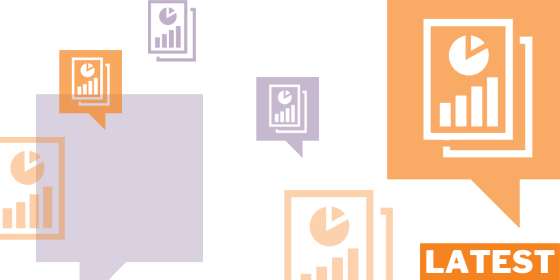Tags: Anti-Bribery & Corruption (ABC), Pandemic and Beyond, Pay, Tax, Treatment of Employees
In this blog, Guendalina Donde, IBE's Head of Research, discusses the results of the 2020 Attitudes of the British Public to Business Ethics survey.
The year just gone has been challenging in many ways, for all of us. Many organisations and their employees too have been hit hard by the restrictions imposed by the spread of Covid-19. Agreed plans and set objectives have been radically changed, and people have had to adjust quickly. That is why this year we were waiting with particular interest for the results of our annual survey Attitudes of the British Public to Business Ethics. Trust is a fundamental ingredient of our lives, and without some degree of trust society could simply not function. However, the dynamics of the pandemic had the potential to strain the already fragile trust bond between business and the public.
The results from our survey show some positive news, but also highlight some issues that require particular attention going forward. Let’s start with the good news. Trust in business has not fallen in this annus horribilis. On the contrary, it has slightly improved: 59% of respondents in 2020 say that British business behaves ethically, compared to 57% in 2019. This might suggest that the response to the crisis offered by businesses, with the support of the Government, has been seen favourably by the majority of the British public.
It is not time for a pat on the back yet, though. The ethical risks that business faced in the pre-Covid-19 world have not gone away. In some cases, they might have been sharpened by the current climate of uncertainty, the concrete risks of being made redundant for some, and the changed interpersonal interaction due to working from home arrangements for others. This means that organisations need to be more alert to some ethical risks that might affect the most vulnerable groups in particular.
Much has been said, for example, about the different impact that the lockdown has had on men and women. “The pandemic is deepening pre-existing inequalities, exposing vulnerabilities in social, political and economic systems which are in turn amplifying the impacts of the pandemic”, stated a UN policy brief published in April 2020. A report by the Institute for Fiscal Studies (IFS) has also warned of the potential for “lasting harm” to women's careers as a result of lockdown.
Our survey reveals some differences between men and women that might reflect these concerns. When it comes to ethical issues that businesses need to address, men tend to prioritise more operational (and perhaps more compliance-focused) issues like bribery and corruption, executive pay, treatment of suppliers and corporate tax avoidance. On the other hand, women prioritise largely interpersonal issues that often sit in the grey areas of ethics like discrimination, harassment and bullying in the workplace and employees’ ability to speak up about company wrongdoing.
Discrimination is an issue that is of particular concern also for the new generations, according to our survey. Respondents aged between 18 and 34 are significantly more likely than their older counterparts to say that it is an issue that needs addressing. Last year marked the 50th anniversary of Milton Friedman’s influential assertion that the social responsibility of business was only to increase its profits, within the law. However, the results of our latest survey might lead us to think that the younger generations ask organisations to show leadership and innovate their approach to business in order to tackle some important social issues as well. Innovation in business ethics is the theme the IBE has chosen for 2021. Together, we will look at the many ways in which organisations can evolve their approach to ethics, in order to go above and beyond the bar set by the law to ensure that all voices are heard, especially those that are more likely to be at the receiving end of unethical behaviour.
I would like to echo Dr Ian Peters, our Director, in saying that as businesses continue to face the challenges of Covid in the year ahead, the New Year resolution should be: Regroup. Recover. Reset for good. At the IBE, we will be here to help organisations do so effectively.
Download the survey here...
Author

Guendalina Dondé
Head of Research
Guen coordinates the work of the Research Hub and conducts research and writes on a variety of business ethics topics, including IBE surveys, briefing and reports. She advises organisations on how to make their code of ethics and policies more effective and conducts benchmarking exercises on specific issues.
She delivers bespoke training sessions, as well as talks and presentations on the IBE research. She is secretary to Professionals against Corruption, at the IBE (PaC, at IBE), which brings together professionals from real estate, legal and accounting professions to prevent corruption.
Before joining the IBE, she collaborated with the inter-university centre for business ethics and corporate social responsibility EconomEtica in developing the code of ethics for the Italian Association of Management Consultants and worked for CSR Europe, a European CSR Business Network based in Brussels. She holds a master’s degree in Business Ethics and CSR from the University of Trento in Italy.
Ethics is knowing the difference between what you have the right to do and what is right to do – Potter Stewart

